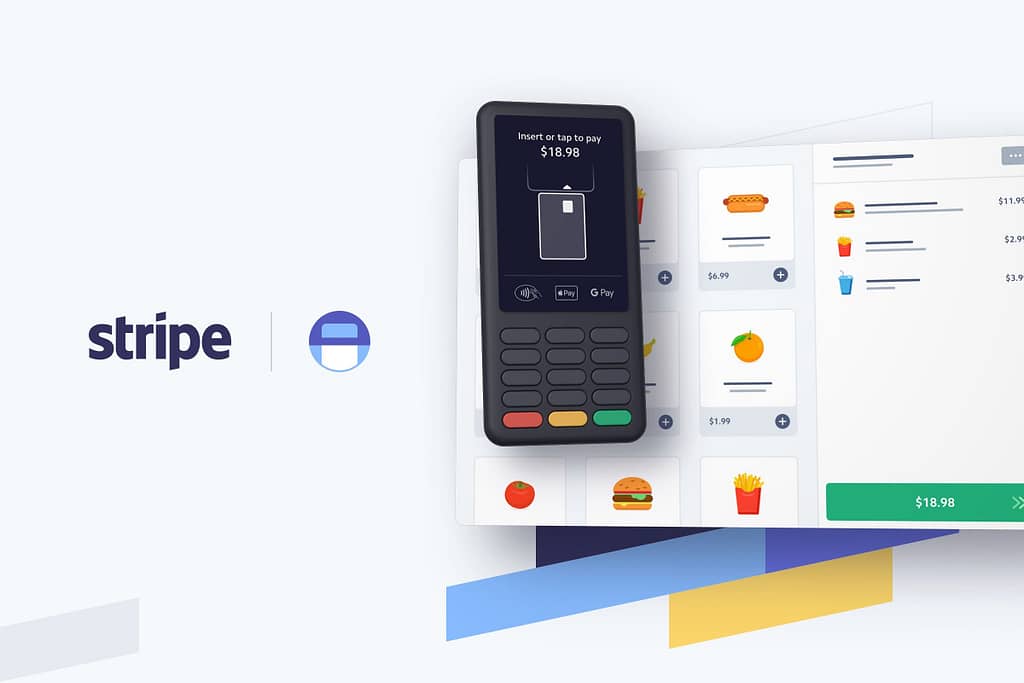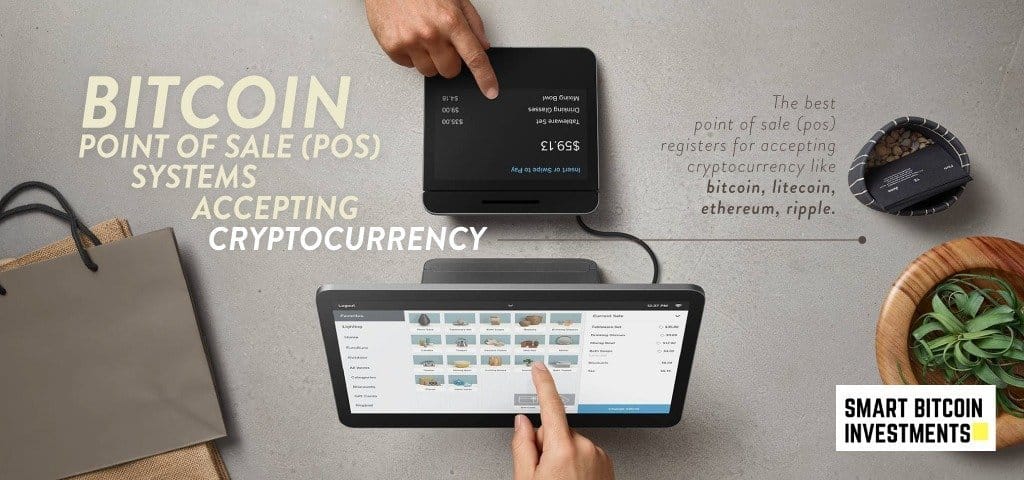With the advent of digital cash registers, point of sale software systems have become more popular and are getting more sophisticated. Point of sale systems allow customers the ability to swipe a debit card or credit card to make a purchase and is oftentimes combined with a cash register. Many point of sale systems have integrated a cryptocurrency payment gateway such as bitcoin to make payments as well due to its speed, security, and transparency. You can learn more about buying cryptocurrencies here.
Table of Contents
What exactly is bitcoin? Put simply, bitcoin is a distributed, worldwide, decentralized digital money. The beauty of bitcoin is the absence of a central authority such as a bank, company, or government. However, as of late, governments have been looking to regulate cryptocurrencies, much like they do with other financial instruments, such as stock trading platforms, bank accounts, financial exchanges, and so forth.
Best Bitcoin Point Of Sale Terminals
| Company | Website | Fees | Customer Service | Rating |
|---|---|---|---|---|
| stripe.com | 2.7% + 5¢ | Knowledge Base | 9.5 | |
| squareup.com | 2.6% + 10¢ | Knowledge Base | 9.0 | |
| paypal.com | 2.7% per US card swipe 3.5% + $0.15 to key in cards 2.9% + $0.30 to invoice 1.5% for cross-border transfers | Knowledge Base | 8.0 |
Bitcoin Point Of Sale Systems
If you want to get a quick snapshot of the hype behind bitcoin, check out these POS software systems which support the cryptocurrency.
1. Stripe

Stripe is a technology company. The Stripe API allows individuals and businesses to receive payments over the internet while the Stripe Terminal extends payments to Point Of Sale in brilliant fashion. Stripe provides the technical, fraud prevention, and banking infrastructure required to operate online payment systems.
Stripe hoped that Bitcoin could become a universal, decentralized substrate for online transactions and help customers enable buyers in places that had less credit-card success or even use cases where credit card fees were prohibitive.
However, Stripe highlights that Bitcoin’s reach of block size limits has shifted Bitcoin to an asset as opposed to a means of exchange.
Stripe expounds that it has led to Bitcoin becoming less useful for payment. Transaction confirmation times rose, which in turn, has led to an increase in the failure rate of transactions denominated in fiat currencies.
Stripe has two supported terminals:
- BBPOS Chipper 2X BT (learn more)
- Verifone P400 Reader (learn more)

2. Block, Inc.
Block, Inc, formerly known as Square, Inc, is a financial services, merchant services aggregator, and mobile payment conglomerate based in San Francisco, California. Square Point of Sale (POS) allows individuals and merchants in the United States, Canada, Japan, Australia, and the United Kingdom, to accept offline debit and credit cards on a Square register, their iOS or Android smartphone or tablet computer.
While businesses are apprehensive about adopting a new POS system, those who use Square can transition more smoothly. Square Register places Bitcoin right next to Visa and Mastercard as a payment option for customers. Square is dedicated to ensuring every seller obtains a sell.
Block, Inc has a selection of point of sale terminals under the Square brand to choose from:
- Square Register (learn more)
- Square Stand for contactless and chip (learn more)
- Square Terminal (learn more)
- Square Reader for contactless and chip (learn more)
- Square Reader for magstripe (learn more)
3. PayPal

PayPal Holdings, Inc. operates a worldwide online payment system, supports online money transfers, and serves as a dependable electronic alternative to traditional paper methods like check and money orders.
Additionally, PayPal has been working on a new modular device, with patent filings, designed explicitly for the use and storage of decentralized digital currencies like Bitcoin, Ethereum and Litecoin. PayPal’s Venmo allows users to purchase and send Bitcoin, which entirely eliminates the need for messy transaction ID’s.
PayPal Here makes it easier to accept card payments in real life. PayPal has a selection of card readers to choose from to work in conjunction with the PayPal Here app:
- Mobile Card Reader (learn more)
- Chip And Swipe Reader (learn more)
- Chip And Tag + Charging Stand (learn more)

